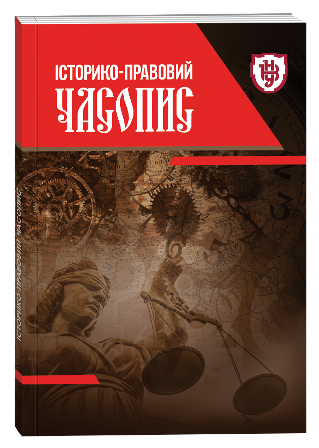THE PECULIARITIES OF THE EXERCISING THE POWERS OF THE EUROPEAN PUBLIC PROSECUTOR’S OFFICE WITHIN THE LEGAL SYSTEM OF THE EUROPEAN UNION
DOI:
https://doi.org/10.32782/2409-4544/2025-1/7Keywords:
European Union, European Public Prosecutor’s Office, material competence of the European Public Prosecutor’s Office, territorial competence of the European Public Prosecutor’s Office, financial interests of the EU.Abstract
The article examines the peculiarities of the functioning of the European Public Prosecutor’s Office (EPPO), with particular emphasis on its role in combating criminal offenses that infringe upon the financial interests of the European Union. The EPPO conducts pre-trial investigations, criminal prosecutions, and acts as the prosecutor in the courts of the Member States until a final judgment is made in the case. The research identifies the categories of offenses falling under the jurisdiction of the EPPO, includes: fraud involving the use of EU budget funds; laundering of proceeds of crime resolution from PIF (Protection of the Financial Interests of the EU) offenses; active and passive corruption; and intentional misappropriation of public funds by officials authorised to manage financial assets. The EPPO is organized at two levels: central and decentralized. The central level consists of the College, the Permanent Chambers, the European Chief Prosecutor, Deputy Chief Prosecutors, European Prosecutors, and the Administrative Director. The decentralized level is represented by European Delegated Prosecutors based in the Member States, who operate on behalf of the EPPO. These prosecutors are required to possess the same investigative and prosecutorial powers as their national counterparts, including the authority to refer cases to national courts. Criminal investigations and prosecutions within the EPPO’s competence are primarily carried out by the Delegated Prosecutors at the national level. It has been established that EPPO has jurisdiction of offenses if they were committed: in the EU or part of the territory of one or more Member States; by a national of a Member State, provided that national law grants jurisdiction over such offenses; outside the EU, by a person to whom the Staff Regulations or Conditions of Employment apply at the time the offence.
References
Treaty on the Functioning of the European Union (TFEU). Consolidated version. Official Journal of the European Union, C 202, 7 June 2016. URL: https://eur-lex.europa.eu/collection/eu-law/treaties/treaties-force.html
Council Regulation (EU) 2017/1939 of 12 October 2017 implementing enhanced cooperation on the establishment of the European Public Prosecutor’s Office (‘the EPPO’). URL: https://eur-lex.europa.eu/eli/reg/2017/1939/oj
Юрчишин В., Савченко В. Європейська прокуратура у системі правоохоронних органів Євросоюзу. Науковий вісник Херсонського державного університету. 2023. Вип. 1. С. 41–45. URL: https://lj.journal.kspu.edu/index.php/lj/article/view/368/341
Directive (EU) 2017/1371 on the Fight against Fraud to the Union’s Financial Interests by Means of Criminal Law, 05/07/2017. URL: https://eur-lex.europa.eu/legal-content/EN/ALL/?uri=CELEX%3A32017L1371
Єні О., Кучинська О., Циганюк Ю. Європейська прокуратура: взаємодія з державами-членами ЄС та перспективи взаємодії з Україною: монографія. Київ : Норма права, 2023. 346 с.
Council Framework Decision 2008/841/JHA of 24 October 2008 on the fight against organised crime URL: https://eur-lex.europa.eu/legal-content/EN/TXT/?uri=celex%3A32008F0841.
Халюк С. Правове регулювання системи органів фінансового контролю в Європейському Союзі: порівняльний аспект. Філософські та методологічні проблеми права. 2024. № 1 (27). С. 58–70. URL: https://philosophy.navs.edu.ua/index.php/philosophy/article/view/1622/1611
Форманюк В. В. Правова природа прокуратури ЄС. Журнал європейського і порівняльного права. 2020. Вип. 12 (1–2). С. 112–114.







